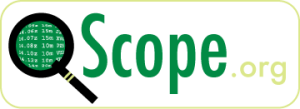 Yes, that's right: It's another brand-new episode of Linux in the Ham Shack! We know it's been a while since your RSS feed has been filled with the joy of our show, but we're back and aiming to stay on track (now that Richard is safely tucked into his cardboard box again). In this action-packed installment, your hosts discuss promoting Linux in the classroom, a wedding interrupted by a radio transmission from above, WA0EIR's updated suite of Open Source ham radio tools, and a novel analytics tool for hams called QScope. See you all down the dial very soon!
Yes, that's right: It's another brand-new episode of Linux in the Ham Shack! We know it's been a while since your RSS feed has been filled with the joy of our show, but we're back and aiming to stay on track (now that Richard is safely tucked into his cardboard box again). In this action-packed installment, your hosts discuss promoting Linux in the classroom, a wedding interrupted by a radio transmission from above, WA0EIR's updated suite of Open Source ham radio tools, and a novel analytics tool for hams called QScope. See you all down the dial very soon!
73 de The LHS Guys
Podcast: Play in new window | Download
